Adaptation Arab Students (Bachelor)
Adaptation of the Bachelor of Science to Arab Students (Bachelor of Science in International Trade, e-learning, second semester).
| Bachelor of Science in International Trade |


“Adaptation of the Bachelor of Science to Arab Students (Study of the main Arab economic institutions)” - Bachelor of Science in International Trade (second semester)
Proposed topics for Arab Students:
Syllabus of the Program: Arab League.
- Introduction to the Arab League
- Economy of the Arab region
- The MENA region (Middle East and North Africa)
- Foreign Trade of the Arab Countries
- GAFTA
- Case Study:
- Orascom Telecom
- Etisalat
Objectives:
- To understand the objectives, functions, and affiliated bodies of the Arab League
- To know the economic profile of the MENA region
- To assess the benefits for the member countries and the areas of cooperation of the Arab League
- To know the Greater Arab Free-Trade Area
Syllabus of the Program: Organization of Islamic Cooperation (OIC).
- Introduction to the Organization of Islamic Cooperation (OIC)
- The OIC and the Ummah
- Subsidiary Bodies of the OIC
- Economic Report on the Organization of Islamic Cooperation countries
- Islamic Fiqh Academy
- Cairo Declaration on Human Rights in Islam
Objectives:
- To understand the functions and the areas of cooperation of the OIC
- To learn about the relationships of the OIC with the Ummah
- To know the affiliated institutions of the OIC
- To understand the role of the Islamic Centre for Development of Trade and the Islamic Chamber of Commerce
- To analyze the Trade Preferential System among the OIC Member States
Standing Committee for Economic and Commercial Cooperation of the OIC
- Introduction to the Standing Committee for Economic and Commercial Cooperation of the OIC
- Objectives and the areas of cooperation of the COMCEC
- Financial cooperation
- Foreign trade and Transport
- Agriculture
- Tourism
- Poverty reduction
- Private sector
- Foreign Trade between the members of the OIC and the world
Trade Preferential System among the Member States of the OIC.
- Introduction to the Trade Preferential System of the OIC
- Framework Agreement of the Trade Preferential System
- Protocol on the Preferential Tariff Scheme (PRETAS)
- Rules of Origin under the Trade Preferential System of the OIC
Islamic Centre for Development of Trade
- Introduction to the Islamic Centre for Development of Trade of the OIC
- Objectives of the Islamic Centre for Development of Trade
- Trade and Investment Promotion
- Foreign trade trends of the Member States of the OIC
Islamic Chamber of Commerce and Industry (ICCI).
- Introduction to the Islamic Chamber of Commerce and Industry
- Objectives of the Islamic Chamber of Commerce
- Islamic Finance: Opportunities, Challenges, and Policy Options
- Waqf Funds and Sukuk Markets
- An Assessment of the foreign trade cost in the OIC countries
Economic and Social Research and Training Centre for Islamic Countries (SESRIC)
- Introduction to the Statistical, Economic and Social Research anTraining Centre for Islamic Countries
- Economic and Social Research Department
- Annual Economic Report of the Countries of the OIC
- Intra‐OIC Merchandise Trade
- Investment in the Countries of the OIC
- Production, Growth, and Employment
- Financial sector
- Economic troubles of the Least-Developed and Land-Locked Organization of Islamic Cooperation Countries
- Statistics and Information Department
- BASEIND Database
- Statistical Yearbook of the OIC
- SWOT Outlook on OIC Member Countries
Human Rights in Islam. Cairo Declaration
- Introduction to the Human Rights in Islam
- Cairo Declaration on Human Rights in Islam promulgated by the Organization of Islamic Cooperation
- The Pillars of the Cairo Declaration: The Sharia and the concept of “Islam, as a representative of Allah on earth”
- Universal Declaration of Human Rights and the Cairo Declaration
Syllabus of the Program: Economic and Social Commission for Western Asia (ESCWA).
- Introduction to the UN Economic and Social Commission for Western Asia (ESCWA)
- Social Developments in the ESCWA region
- ESCWA Centre for Women
- Economic Development and Globalization in the Western Asian markets
- Statistics of the Economic Commission for Western Asia (ESCWA)
- Investment in the Western Asia region
- Greater Arab Free-Trade Area (GAFTA)
Objectives:
- To understand the objectives, structure, and functions of the Economic and Social Commission for Western Asia
- To analyze the economic and social development of the member countries of the Economic and Social Commission for Western Asia
- To learn about the Greater Arab Free-Trade Area
- To evaluate the funds and projects of the ESCWA
Syllabus of the Program: Afro-Arab Cooperation
- Introduction to the Afro-Arab Cooperation
- Afro-Arab Development Forum
- Afro-Arab Preferential Trade Area
- Bodies of the Afro-Arab Cooperation
- Afro-Arab Institute for Culture and Strategic Studies
Arab Bank for Economic Development in Africa (BADEA).
- Introduction to the Arab Bank for Economic Development in Africa
- Structure of the BADEA
- Projects financed by the Arab Bank for Economic Development in Africa
- BADEA Export Financing Scheme
- Arab and African Businesswoman Forum
Objectives:
- To understand the purposes of the Afro-Arab Cooperation
- To explore the areas of cooperation between the African and the Arab countries
- To analyze the economic ties between the Arab and the African Countries
- To understand the role of the Arab Bank for Economic Development in Africa
- To know the BADEA Export Financing Scheme
- To understand the importance of the Afro-Arab Preferential Trade Area
Syllabus of the Program: Asia-Middle East Dialogue (AMED).
- Introduction to the Asia-Middle East Dialogue
- Aims and Principles of the Asia-Middle East Dialogue
- AMED Working Groups
- Role of the ASEAN and the Arab League
Objectives:
- To understand the aims of the AMED
- To evaluate the role of the working groups of the Asia-Middle East Dialogue
- To analyze the economic profile of the member countries of the AMED
Syllabus of the Program: Summit of South American-Arab Countries (ASPA)
- Introduction to the Summit of South American-Arab Countries
- Coordination Structure and Organizational Chart of the ASPA
- Lima, Brasilia, Rabat, and Doha Declaration
- League of Arab States and the UNASUR
- Meetings of the Council of senior officials of the ASPA
Objectives:
- To understand the objectives of the ASPA
- To know the functioning of the Summit of South American-Arab Countries
- To analyze the areas of cooperation of the ASPA
Subjects of the second semester of the Bachelor of Science in International Trade.
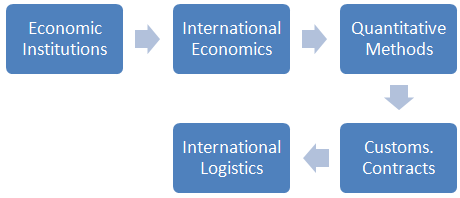
Samples: adaptation of the Bachelor of Science to Arab Students (Study of the main Arab economic institutions) (Bachelor of Science in International Trade, e-learning, second semester).
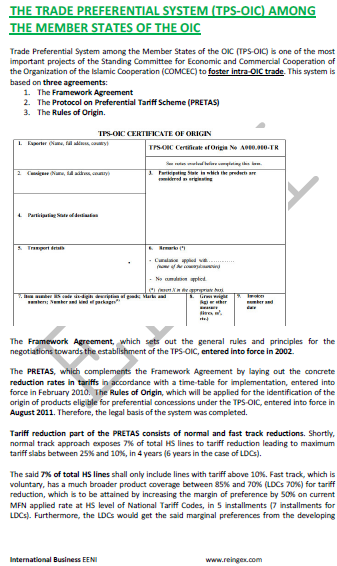
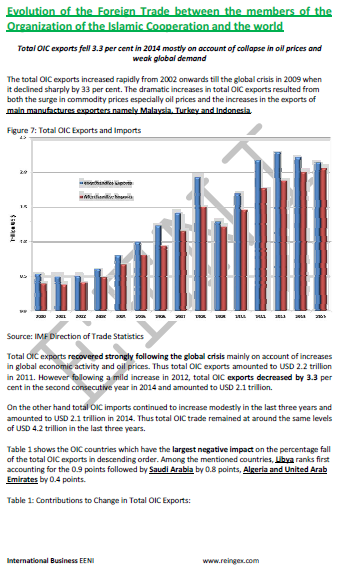
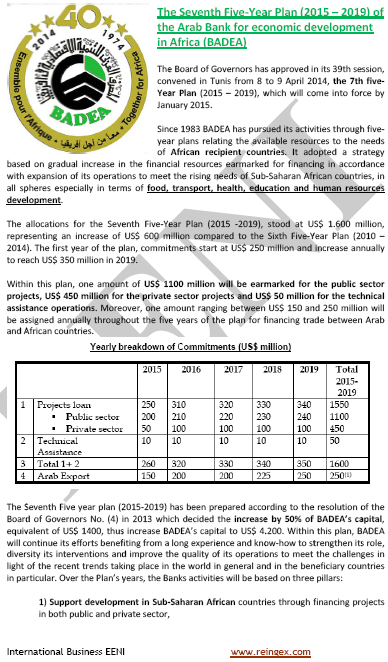
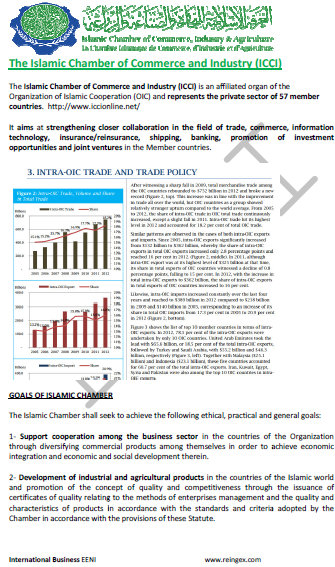
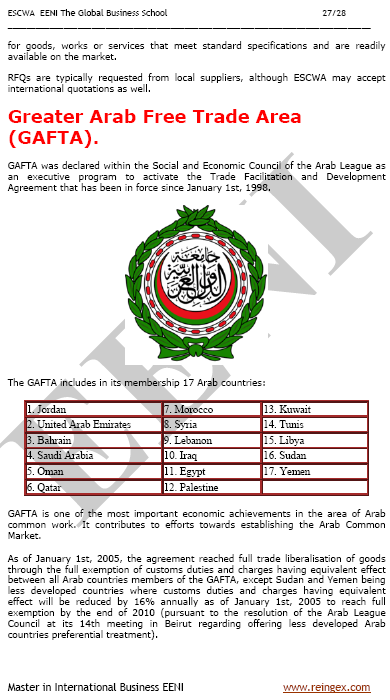
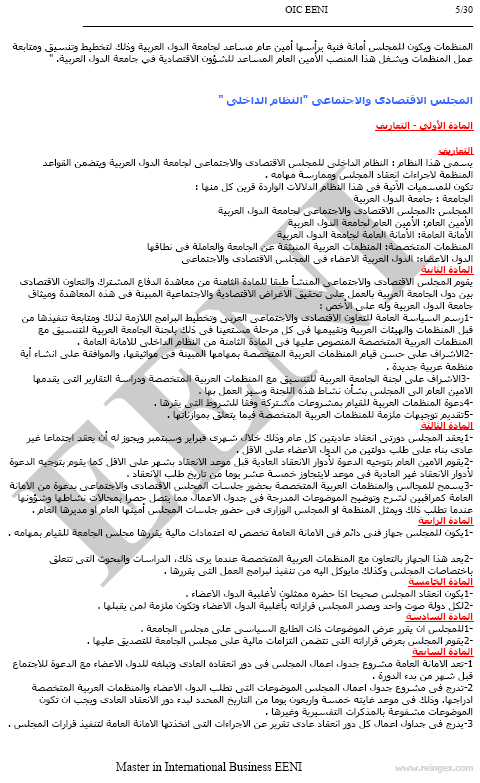
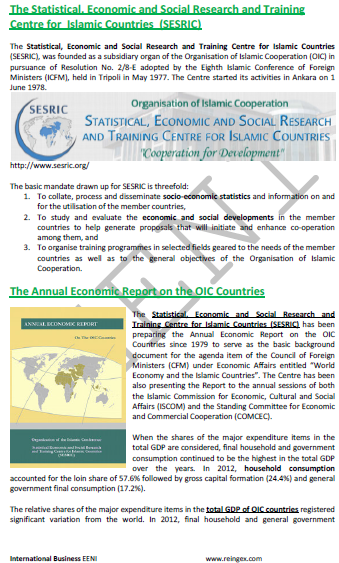
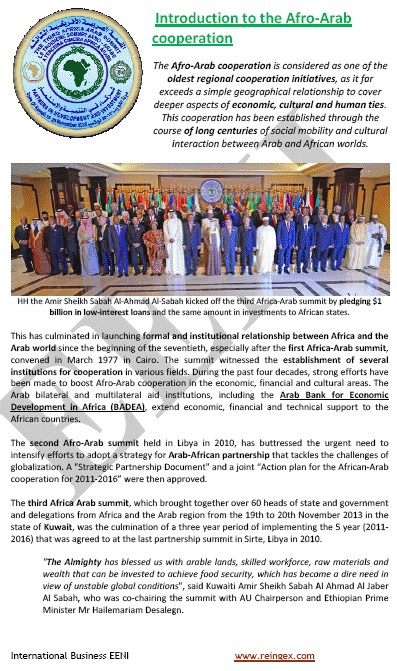
Language of the subject “adaptation of the Bachelor of Science to Arab Students (Study of the main Arab economic institutions)” of the Bachelor of Science in International Trade (second semester):  or or
or or  EENI
EENI  EENI
EENI  EENI.
EENI.
(c) EENI Global Business School (1995-2024)
We do not use cookies
Top of this page

